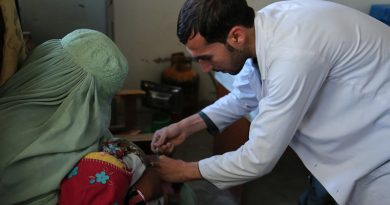FOCUS on: The World Bank’s Rocky Reputation: Impact and Accountability
Christian Almestica
Staff Writer
https://www.gettyimages.com/detail/news-photo/exterior-view-of-the-headquarters-of-the-westlb-in-news-photo/150759777?adppopup=trueSince its inception in 1944, the World Bank has played a vital role in universally supporting and developing financial initiatives to decrease poverty while simultaneously stimulating economic growth in various nations with limited resources. These World Bank projects, often budgeted in the billions of dollars, seek to aid in infrastructure, health, education, and gender equality says the World Bank. However, as of recently, its reputation has come into question by supporters and detractors alike. By reviewing one of its most recent projects, a $1.57 billion loan to Nigeria, it may lead to a greater understanding of the role of the World Bank plays as a global institution.
The loan, granted to the Nigerian government on September 26, highlights some of the core tenets of the World Bank, eliminating poverty and fostering sustainability reports Reuters. The loan is divided into three parts, $500 million to address the governance and infrastructure issues that currently limit the delivery of education and health, $570 million towards healthcare through the Primary Healthcare Provision Strengthening Program, and $500 million for the Sustainable Power and Irrigation for Nigeria Project reports the World Bank.
Nigeria is home to the largest population of people on the African continent as well as the second largest economy, second only to South Africa, according to The World Factbook. Nevertheless, the country relies heavily on foreign investment to assist in addressing developmental issues where institutions are limited. This notion is supported by its $1.2 billion outstanding purchases and loans the International Monetary Fund reports and the $15 billion worth of loans from the World Bank as Reuters reports.
Furthermore, the supporters of the World Bank would empathize with these large-scale initiatives and financial development projects as justification for its existence but also its irreplaceability. Without this institution, the distance between low- and middle-income countries would only expand, as their race to catch up with the high-income countries would become impossible. The Council on Foreign Relations argues that part of the utility of the World Bank is its ability to mobilize previously unorganized financial resources in a structured manner which allows for these large-scale initiatives. Without international assistance, such endeavors are impossible and would only increase the global wealth disparity.
Yet, despite these beneficial contributions, the World Bank’s reputation has received a series of criticisms throughout its 80-year history. Particularly, its scrutiny has come from the organization’s accountability mechanisms and transparency to the public. For example, as Rights in Development highlights, although the World Bank intends on alleviating poverty, the opposite is often true. Projects have resulted in mass displacement and local environment damage in rural areas. A Nachtigal hydroelectric World Bank project in Cameroon in 2022, for example, created mass deforestation and human displacement.
Moreover, a wider grievance arises centered around how the World Bank is governed internally. As Brookings mentions, the World Bank and similar financial institutions, such as the International Monetary Fund, operate outside the bounds of democracy, where the executive power of decision-making is dominated by a small minority of economically wealthy countries. Regardless of the fact, many of the projects and initiatives impact the lives of those outside of the high-income countries. This disconnection has led to more efforts to establish a larger participatory decision-making process with complete public access to monitor the project implementation.
Nevertheless, large-scale reform at the World Bank is a daunting endeavor. Efforts are being made to promote the issues of accountability and transparency, especially in the fields of social participation and environmental sustainability, reports the World Bank. These efforts are often met with the slowness that is typical of large bureaucratic institutions, like the World Bank. Ultimately, however, the institution provides significant funding to countries across the globe, and without it, these national governments are unable to initiate these projects on their own, reports Brookings. Recent loans, such as the one in Nigeria, are examples of their ability to satisfy the large financial demands that otherwise would be impossible. The World Bank, as indispensable as it has become, must continue to stimulate economic growth and social well-being while mitigating the adverse effects of the projects it finances, a delicate balance, where its success will only be seen in the years to come.
Image courtesy of Getty Images

